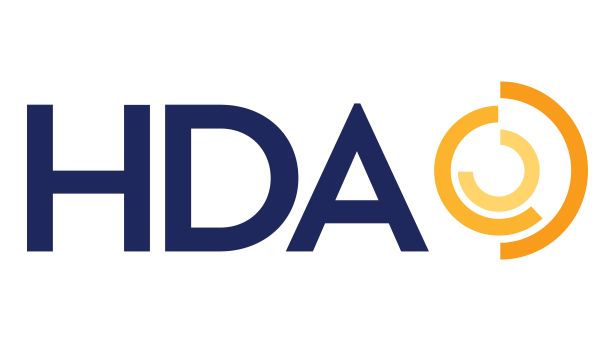Securing the Pharmaceutical Supply Chain Against Scammers
The global supply chain continues to face scrutiny, with port backups and product shortages grabbing headlines. However, as Chuck Forsaith, Vice President and Founder of HDA’s Pharmaceutical Cargo Security Coalition (PCSC), shared in a recent episode of the Pharmacy Crossroads podcast, there is another supply chain risk impacting trading partners throughout the healthcare distribution industry — which HDA’s PCSC has been diligently tracking and working to combat. Pharmacy Crossroads, hosted by pharmacy industry veteran Bruce Kneeland, provides an insider voice for the community pharmacy industry and is a member of the Pharmacy Podcast Network.
The Problem
Pharmaceutical supply chain companies are losing millions of dollars after falling victim to sophisticated phishing scams. As Chuck explained to Bruce, “Since December of 2020, there have been reports of both distributors as well as several of their pharmacy customers receiving either telephone calls or emails as part of a fairly sophisticated phishing scam to unlawfully divert pharmaceutical goods.”
Chuck further detailed, “It is known primarily as social engineering, or the use of deception to manipulate individuals into divulging confidential information...[information] that [is] going to get [the scammers] into the business relationship between a distributor and a retail entity, or between a distributor and a manufacturer, or a retail entity and a manufacturer.”
While this type of fraud is not a new issue to the industry, the range of targeted products is expanding and the subject of an active investigation by law enforcement officials.
The Fraud Scheme
Using social engineering schemes through phone and email outreach, scammers can deceive employees of companies throughout the healthcare supply chain to divulge information. Once the bad actors have secured this sensitive account data, they then manipulate existing trading partner relationships to ultimately commit fraudulent acts. As Chuck described, “There are a number of different human elements that the scammers exploit or exhibit.”
Chuck noted:
Through phone conversations with either a distributor or pharmacy representative, the scammers may appear overly confident, impatient, even pushy, essentially acting more aggressively to attempt to get an order processed than what would normally be expected. In certain instances, the scammer may attempt to convey a sense of urgency, which may lead the representative to be sympathetic and let down their guard. In such an attempt, the scammer tries to appeal to the representative’s emotions …
[By] email communications, the scammers will frequently spoof a legitimate email address, simply by adding a single letter or sequence of letters … in all of these conversations, the goal of the scammer is to gain control of that shipment, without having to pay for it, and to divert that parcel to a different address.
The primary scams occurring fall into three categories:
- Fraudulent Ordering – This most prevalent and lucrative scam (currently) involves a bad actor first posing as a legitimate pharmacy employee placing an order from a distributor. The scammer hires a local, unwitting courier to pick up the shipment and deliver to a location the scammer specifies.
- Product Recall Fraud – In this instance, the scammer calls a pharmacy posing as a legitimate manufacturer employee. An unwitting local courier is hired to pick up the shipment of product they told the pharmacy was recalled, and the product vanishes.
- Payment Fraud – In this third scenario, the scammer calls a pharmacy posing as a legitimate distributor employee, telling the pharmacy customer that their payment terms have changed and to instead make payments to a new ACH or account. This new account is in fact owned by the scammer.
What Can Companies Do?
It is critical that organizations throughout the supply chain and their employees routinely disseminate reminders about fraud risks, conduct due diligence and have a healthy level of skepticism when fielding calls, even with perceived regular trading partners. While employees may feel confident that they could not fall victim to such attempts, Chuck underscored that these scammers “are very, very adept at leading a person they are speaking with to give them information they normally would not.”
To listen to Chuck’s full Pharmacy Crossroads episode, click here.
Additionally, PCSC recently developed a Fraud Alert Document that details additional recommended actions for distributors and pharmacies to protect themselves.
To receive daily alert emails from PCSC, with pertinent supply chain and fraud information, email Chuck at cforsaith@hda.org, and visit the PCSC website for additional security-focused resources.
